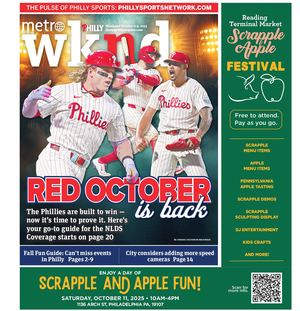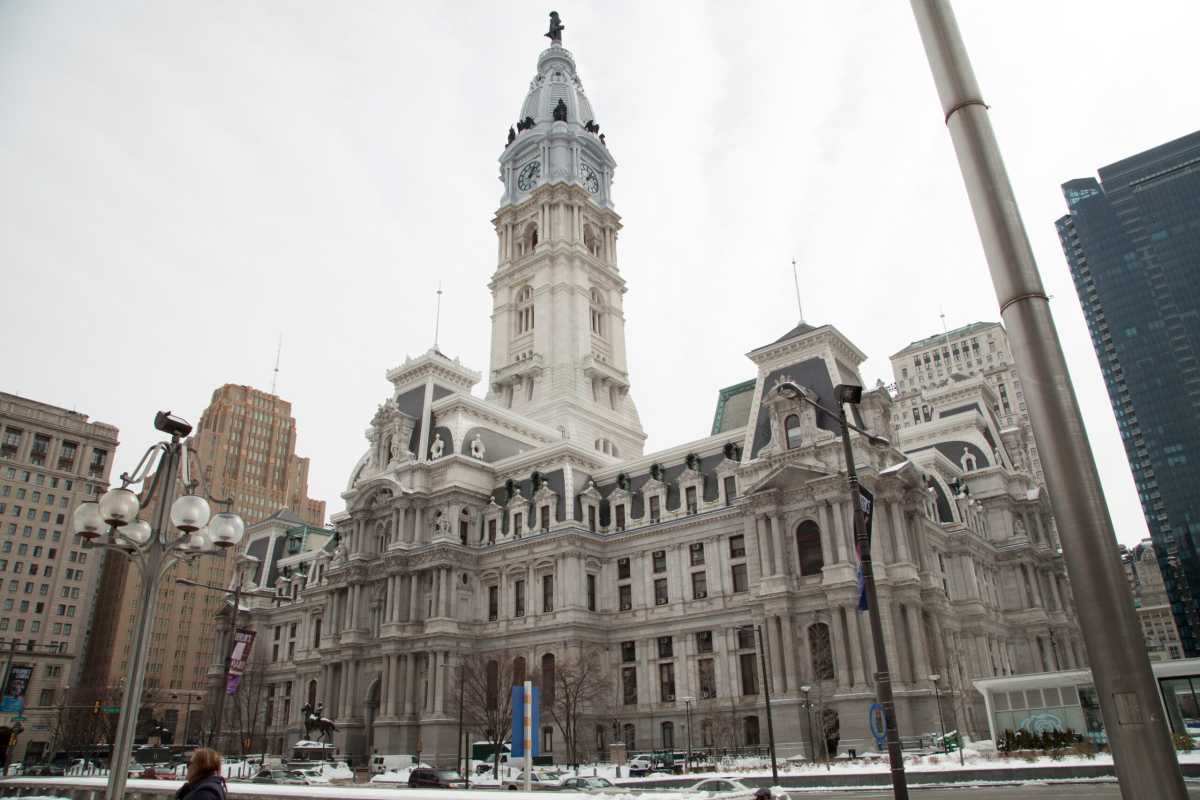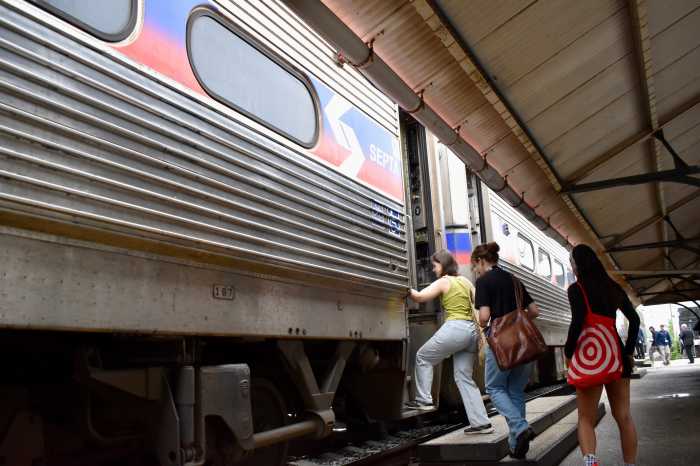City Council advanced legislation Wednesday requiring supermarkets and other businesses to charge a fee for paper bags, over objections from officials in Mayor Jim Kenney’s administration.
The bill builds on Philadelphia’s single-use plastic bag ban, which went into effect in late 2021, and would add a 15-cent fee per bag. The goal is to get residents to shift to bringing their own reusable bags to the store, said Councilmember Mark Squilla, the legislation’s prime sponsor.
Nearly all businesses, including corner stores, restaurants, food trucks, clothing shops and delivery services, are covered by the regulations. Plastic bags used for bulk items, meat, fish and produce, as well as utensil sleeves, trash bags and dog poop bags are exempt.
A final vote on the “checkout bag fee” could be held as soon as Council’s meeting next Thursday.
But, during a hearing on the bill Wednesday, Télyse Masaoay, of Kenney’s Office of Diversity, Equity and Inclusion, said the measure “raises several equity concerns and should be revised before moving forward.”
She told lawmakers her team believes the fee could burden low-income residents; allow stores to price gouge customers; and harm mom-and-pop shops.
“Adding a 15-cent fee per bag may ultimately push Philadelphians to shop outside of the city limits to avoid this added cost or push businesses outside of the city when they consider compliance with this requirement as one more hurdle to doing business in Philadelphia,” Masaoay said.
She also suggested proceeds from the fee be used to fund environmental justice initiatives, instead of allowing the business to keep the money. Squilla said the Kenney administration previously told him that collecting fee revenue would not be feasible.
“The goal of the legislation is not to have people pay for bags. It’s just to bring your own bag,” he said, later adding, “This is not a revenue generator.”
Teea Tynes, a Fairhill resident, testified in support of the bill, saying that “the argument that the single-use plastic ban and a bag fee are burdensome to communities like mine is extremely insulting and obscures the real burden.”
Tynes and Aminata Sandra Calhoun, who lives in the Belmont section of West Philadelphia, said litter from plastic bags and illegal dumping disproportionately affects low-income Black and brown neighborhoods.
“It is so embarrassing for me to even let friends and associates come into the area in which I live,” said Calhoun, who serves as director of sanitation and environmental programs for the Centennial Parkside Community Development Corporation. “I am really not pleased or happy just looking at all these plastic bags all over the place.”
A city-commissioned study of the plastic bag ban, released in April, showed that, while the number of people using disposable bags decreased overall, the share of customers using paper bags increased from 18% to 46% at grocery stores. A smaller portion of people, 42%, utilized reusable bags.
“While the paper is preferable over plastic, the goal of this bill is waste reduction, to reduce the use of all single-use bags – paper and plastic – in favor of reusable bags,” said Maurice Sampson, eastern Pennsylvania director for Clean Water Action.
Sampson said retailers have traditionally passed along the cost of “free” bags to consumers through increasing the prices of other items. Environmental advocates said fees have proven to be effective in other jurisdictions.
“Fees have a dramatic impact on consumer behavior,” Sampson said. “Fees raise the question, ‘Do I really need this bag?’”
Of the 24 local ordinances cracking down on single-use bags in Pennsylvania, around 75% mandate fees, including a measure in Pittsburgh, said Faron Savitz, of PennEnivornment.
Philadelphia was among the first municipalities in the state to outlaw plastic bags when Council approved legislation four years ago. Implementation was delayed until October 2021, with the Kenney administration concerned about imposing additional restrictions during the coronavirus pandemic.
Enforcement began in April 2022, with businesses caught violating the law subject to $150 fines.




























